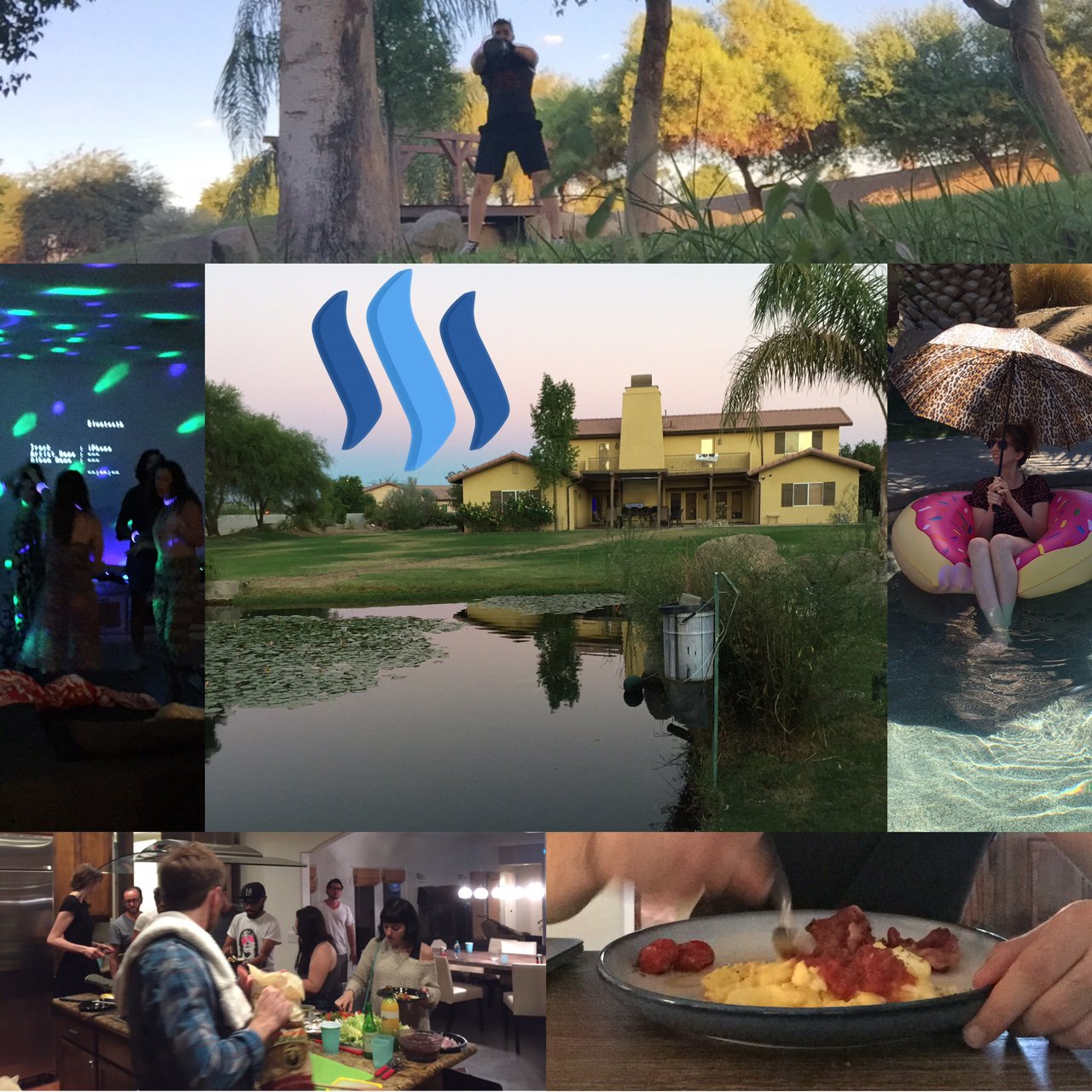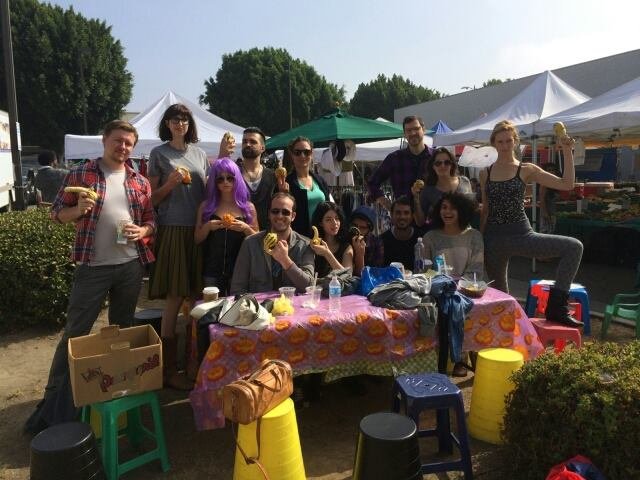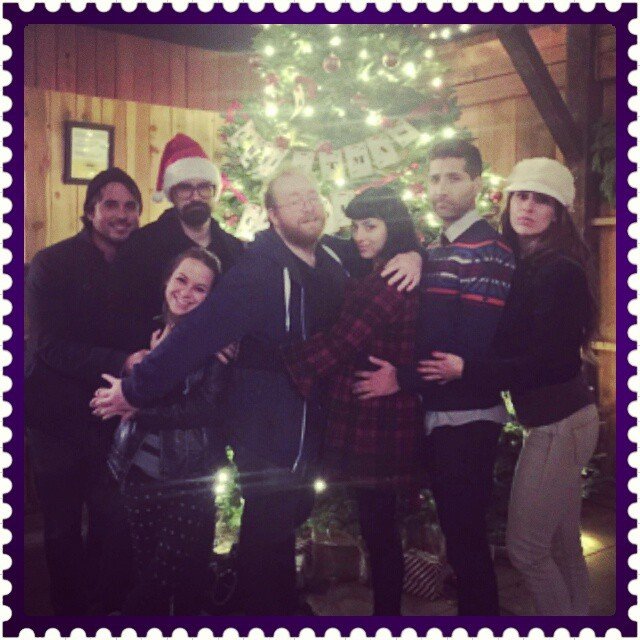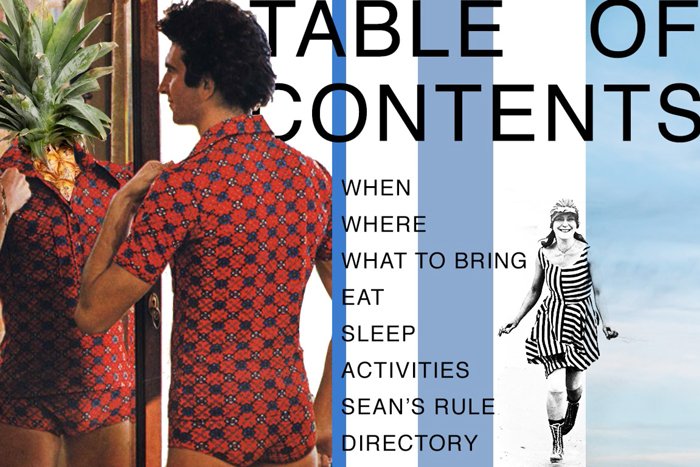
Six years ago, while waiting in line to see The Price is Right, I was introduced to a woman named Tweedy. After speaking for hours, she invited me to meet her and her friends for breakfast later that week.
The breakfast was held at a small farmer's market. Tweedy, welcomed me to the table and introduced to group fantastic conversationalists, who were friendly, and quick to include me in their discussions. I left breakfast feeling energized, and the next week I received a text inviting me back.
By the end of the month, I was invited to join the group for dinner parties, road trips, weekly meetups and a variety of other social events. This group was different from my other social circles, because they were intensely active; always with a unique event on the horizon.
I have a strong background in social engineering and psychology, and I was intrigued by how they managed to stay so active. Other groups I'd hung around with were relatively stagnant; visiting the same bars, restaurants, never growing, and never changing. I wondered if it was possible to transform one of these inactive social groups into an active one.
After a few years hanging around them, I found that there is a method to the madness. Enjoy:
Give The Group A Name.
The group that I became part of was introduced to me as "The Breakfast Club." This was the first time that any group of friends had a name. It felt exclusive. It might sound silly, but I instantly felt included and accepted; like I was truly part of a group. The point of the name is to add something to help bring cohesion to the group. By giving a group of friends a name, you define the group, and people are more ready to show up to defined group events rather than amorphous friend gatherings.
In short, you don't have to have t-shirts printed with the name of your group, but you should have a name that you can call the group, in passing. For Example, "We'll meet up after Breakfast Club."

Create A Regular Easy-To-Attend Event.
As I'd mentioned earlier, the first experience I had with the Breakfast Club was breakfast. Each week they met at a local farmer's market and ate together.
The goal for the organizer wasn't to get everyone to show up, but to make sure at least a few people showed up consistently. Consistency is key.
Each week the organizer would send out a group text to group with the time we were meeting and "Topics of discussion."
Here are a few:
- The Flash, Flashcards, and Flash sales.
- Three armed dresses the appropriate angle for sitting, and other natural flavors.
- Voting, being real nice, and being real nice even though it's hard sometimes.
- The best of Enya, That our culture has over 200 words for Jon Snow, and the top ten night activities.
They were nonsensical, but they made the message fun to read even if you couldn't make it, you’d still check your phone to see what was written. Again, you have consistency. You're looking at the text and laughing each week. Even though you're not there you feel included.
The breakfasts became a habit, and even if the regular organizer couldn't make it, someone else would take the reigns, organize the breakfast, and send out a text with equally ridiculous topics.
If you're the person who organizes the gatherings and you can't make it, ask someone else to send the text out to the group. This will get them more involved and is a great litmus test to see if what you're doing has value to the group.

Add Unique Celebratory Events To The Calendar
Once a group has an identity and is in the habit of meeting up, the organizer can begin to add new events to the calendar.
Start with holiday parties and birthday events. Choose events where there’s cultural obligation to show up. This gets the group in used to meeting up outside of the regular weekly event.
Give each event a theme or find an activity that corresponds to the event. This adds uniqueness to the event and makes it more enticing - something you wouldn’t want to miss.

Try Something Big.
Our yearly Palm Springs event requires some serious planning. Our event includes renting a mansion large enough for 20+ people. It requires collecting expenses from each attendee, purchasing food, setting up a schedule for who’s cooking what meals, and adding some events to the weekend that will make it memorable.
Recognize, that events like this must be planned a few months ahead:
- Find out when the most people who can afford the weekend can attend. This can be done by creating an online form in google forms and sending it out to your list of friends.
- Find a venue. Rent or use someone’s house.
- Plan what needs to be planned, and make sure people know what’s going on. For this weekend it was: Who’s cooking and when, Dance Parties, Games, A Formal Night, and a Talent Contest.
- Set any rules that need to be set. This is of major importance if you’re renting a place.
- If the event costs money, give people enough time to pay and an easy way to do it. Our organizer used Venmo or Paypal to keep track.
- Be creative. It shouldn’t be like buying concert tickets. It should feel special and intimate, our organizer went ahead and created an amazing guide book that was sent out with all the info.
Here are two pages from this year’s GuideBook:


Adding People To The Group
New people need to be added to the group -- new people means new energy. They help keep conversation from getting stale and making the group feel stagnant.
The goal is to create a cohesive, functioning, active social circle. Not everyone will get along with everyone - so, be selective: See if people mesh before inviting them into the group.
If you meet someone new that you think will enjoy being around your group of friends (and vice versa), invite them to one of the irregular events like a holiday party. If they’re interesting people who add value to the group and mesh, invite them to more. When it comes to bringing people into the group -- you don’t have to be a tyrant, but you should at least test the water.
I hope you enjoyed this article. As always, I'd love to hear thoughts from the Steemit community. Thanks for reading!

